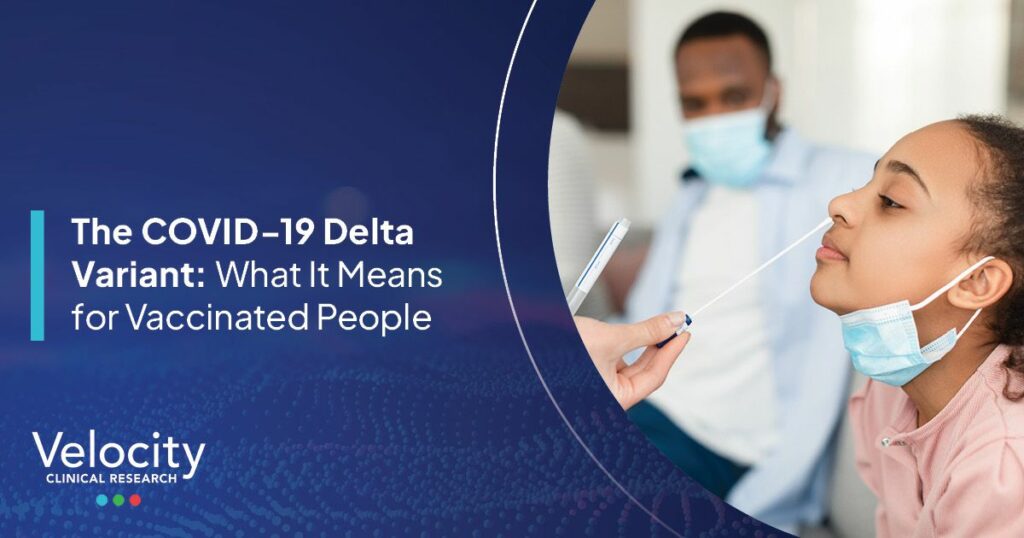I Got the COVID Vaccine: Should I Worry About the Delta Variant of Coronavirus?
COVID-19 is still dominating headlines, but instead of focusing on the vaccination efforts around the globe, a relatively new variant of COVID-19, B.1.617.2, known as the Delta variant, is commanding media attention. Because of its highly contagious nature, some states, like Nebraska, Georgia and Louisiana are currently (as of July 27, 2021) seeing the rates of new coronavirus cases sit between 10 and 15%, and nationwide, over 83% of all new COVID-19 cases in the last two weeks were due to the delta variant (July 4-17, 2021).
What is the Delta Variant?
Variants in illnesses like influenza and coronavirus develop from mutations, or changes, to the genes of a virus. These variants can alter how contagious and dangerous viruses may be to those infected.
The Delta variant was first discovered in India in December 2020 and detected in the United States in March 2021. Delta is now the most prevalent SARS-CoV-2 virus strain in the US.
Not much is known yet about the variant, but health experts are finding that the variant is highly contagious and that the symptoms are the same as the original strain of COVID-19. Unlike the original strain, the Delta variant seems to develop and grow more rapidly inside the respiratory tract, causing infected people – particularly young people – to get sicker more quickly.
The Delta Variant and COVID-19 Vaccines
Although the Delta variant is easily spread from person to person, early findings suggest that the Pfizer/BioNTech, Moderna, and Johnson & Johnson vaccines provide strong protection against the new COVID-19 variant. Most new COVID-19 cases in the US are of unvaccinated people; nationally, 97% of patients hospitalized with COVID-19 are unvaccinated, as of July 22. However, becoming infected with the Delta variant of coronavirus as a fully vaccinated individual is still possible.
When a vaccinated person tests positive for COVID-19, most either have no symptoms or have very mild symptoms, and it rarely results in hospitalization or death. Their symptoms are more like those of a common cold or the lesser-known respiratory syncytial virus (RSV), such as cough, fever or headache, with the addition of significant loss of smell.
Fighting the COVID-19 Delta Variant
The primary method of protection from the Delta variant is to get vaccinated. Despite rampant misinformation surrounding the COVID-19 vaccines, vaccinations that have received FDA Emergency Authorization — including the Pfizer/BioNTech, Moderna, and Johnson & Johnson vaccines — have undergone clinical testing to assess safety and efficacy. The vaccines are crucial to slow the spread of COVID-19 and its variants, and to help prevent the development of new variants.
Additionally, CDC guidelines recommend wearing masks at all times while in public and avoiding large gatherings, even if you are fully vaccinated.
More Information and References on COVID-19 and the Delta Variant
Centers for Disease Control and Prevention (CDC): https://www.cdc.gov/coronavirus/2019-ncov
CDC, COVID Data Tracker: https://covid.cdc.gov/covid-data-tracker
Velocity Clinical Research, COVID-19: https://www.mcrmed.com/covid-19-mutations-variants-vaccines
Current and Upcoming COVID-19 Clinical Studies
Velocity has been a key partner in the fight against COVID-19. The fight is not over — Velocity is still conducting COVID-19 research studies. If you’re interested in learning more about or participating in an COVID-19 trial with Velocity, visit our find a study page to speak with a recruitment specialist.

